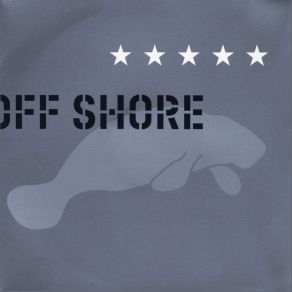Off Shore
Download links and information about Off Shore by Jaap Blonk. This album was released in 2003 and it belongs to Jazz genres. It contains 8 tracks with total duration of 01:50:52 minutes.

|
|
|---|---|
| Artist: | Jaap Blonk |
| Release date: | 2003 |
| Genre: | Jazz |
| Tracks: | 8 |
| Duration: | 01:50:52 |
| Buy it NOW at: | |
| Buy on iTunes $19.99 | |
Tracks
[Edit]| No. | Title | Length |
|---|---|---|
| 1. | Erra | 12:59 |
| 2. | Flode | 12:39 |
| 3. | Gruimveld | 13:45 |
| 4. | Zikse | 16:01 |
| 5. | Har | 8:56 |
| 6. | Skjull | 13:27 |
| 7. | Oi | 12:13 |
| 8. | Ongronder | 20:52 |
Details
[Edit]A surprisingly subdued quality infuses much of this recording, beginning with the opening track (which evolves into a clever Zornian ear-catcher), but as the music was composed by Jaap Blonk there is, as to be expected, goofiness galore. Blonk wrote the vocal texts and engaged in the electronics, which he describes as algorithmic compositions on a computer. While Bart Van der Putten is the first name listed on the cover, the trio appears to be a leaderless collective, with none of the three dominating instrumentally. This two-CD set is filled with peaks and valleys, and might have been more easily listenable if edited to a single disc. There are more atmospherics than usual in Blonk's pieces, which are more accessible, if less riveting, than usual. Blonk's infatuation with electronics pays off handily, though, as he adds a new layer of creativity with repetitive patterns, static, and off-beat sounds, only occasionally getting a bit tedious. The pieces incorporate processed samples of the three players, while the melodies (and some of the improvisations) use different scales for ascending and descending intervals. Paul Pallesen's electric guitar sings with a punch, and he matches Blonk's intensity. The talented Van der Putten has recorded more impressively with Blonk before , and here he sounds a bit of the odd man out, the figurative straight in the gay bar, as he blows hard-edged melodic clusters masked by a sweet tone, often contrasting strikingly with the often more experimental visions of his partners. His harmonica adds a down-deep country and blues feel that plays particularly well on "Ongronder," where Blonk weaves in and out with his mock gangster voice. For the Blonk aficionado, there is plenty of appeal, from the compositions to his "singing" new sounds, but those interested primarily in Blonk's remarkable technical skills can find better examples of his work. This group appears transitional, experimenting but not quite yet finding its collective voice.